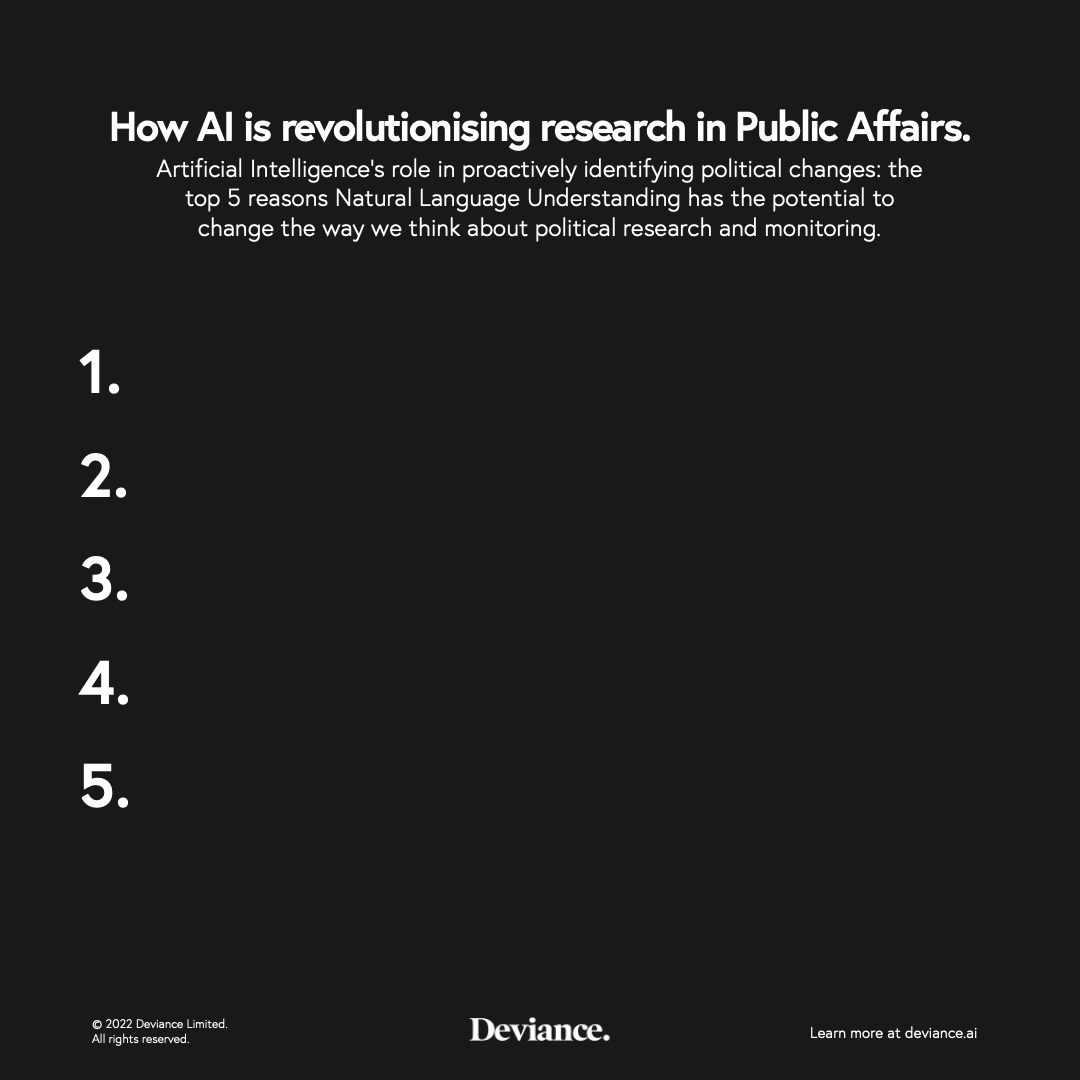Artificial intelligence (AI) has the potential to revolutionise the way we understand political sentiment and uncover the truth behind public opinion. With the use of natural language understanding (NLU) algorithms, AI can analyse vast amounts of data, including political records such as Hansard, social media posts and news articles, to identify changes in opinion among both politicians and the general public.

One recent example of opinion changes in a UK politician being identified using NLU occurred during the Brexit negotiations in 2019. As the negotiations progressed, AI tech was used to analyse the language and context of statements made by UK politicians to identify shifts in sentiment.
The technology was able to flag that certain politicians who had previously been supportive of a hard Brexit were now using more conciliatory language and expressing a willingness to compromise on key points of negotiation around trade, immigration, and the future relationship between the UK and EU.
This shift in sentiment was likely driven by public opinion, which had become more divided on the issue of Brexit as the negotiations progressed. By using NLU to identify these changes in opinion, AI was able to provide valuable insights into the political landscape and help politicians craft their messaging and strategy more effectively. This demonstrates the real power of AI to accurately gauge political sentiment and reveal the truth behind it.
But how exactly does this work? And how can AI be used to accurately gauge political sentiment and reveal the truth behind it?
One of the key strategies used to identify changes in opinion is a process called comparative linguistics. By comparing day by day, week by week, the words and phrases used by people, AI can identify trends and shifts in opinion. For example, if a politician suddenly talks about compromise when discussing trade, AI can identify this and flag it as a potential change in opinion.
But it's not just about the words themselves; context also plays a crucial role in understanding political sentiment. AI algorithms can analyse the context in which words are used, taking into account the tone, audience, and purpose of the content. This allows AI to identify subtle changes in opinion that might be missed by traditional methods of analysis.
So what does all this mean for politicians and businesses? By using NLU to analyse political sentiment, we can gain a deeper understanding of how opinions are shifting and what factors are driving those changes. This can be incredibly valuable for politicians looking to craft their messaging and appeal to voters, as well as for businesses who want to stay ahead of the latest political developments.
But it's not just about identifying changes in opinion; AI can also be used to expose the truth behind political rhetoric. With the proliferation of fake news and disinformation, it's increasingly important to have accurate and reliable sources of information. By using AI to analyse content and identify patterns of deception, we can uncover the truth behind political statements and ensure that we have accurate information to make informed decisions.
Whether you're a politician looking to craft your messaging or a business looking to stay informed, AI is revolutionising the way we understand political sentiment and reveal the truth behind it, more easily and more quickly than we ever thought possible.
Rich Wilson is the founder of Deviance, pioneers of Active Intelligence, technology that enables always-on identification and analysis of changes in opinion for clients in governments, public affairs, investment, music, sport and TV worldwide.














